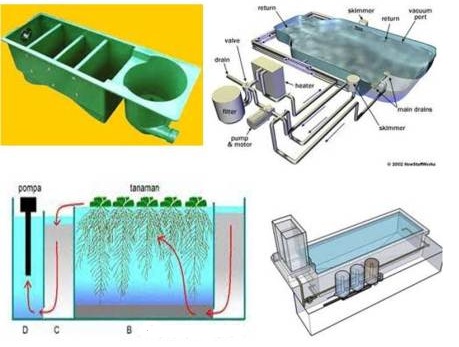
The Ultimate Guide to Koi Pond Filters: Everything You Need to Know About Choosing the Right Filter and Solving Common Problems
Introduction
Koi ponds are great additions to any backyard garden. They not only provide a beautiful and serene environment but also give you the opportunity to raise these fascinating and beautiful creatures. However, to keep your koi healthy and your pond beautiful and clean, it is important to invest in a high-quality koi pond filter. In this guide, we will discuss everything you need to know about koi pond filters, including how to choose the right one for your pond and how to solve common filter problems.
Types of Koi Pond Filters
There are several types of koi pond filters available on the market, each with its own pros and cons. Here are the most common ones:
Mechanical Filters
Mechanical filters work by physically removing debris, such as leaves and fish waste, from the water. They usually consist of a foam pad or a series of pads that trap the debris as the water passes through. Mechanical filters are great for removing larger particles, but they do not address biological filtration.

Biological Filters
Biological filters are essential for maintaining a healthy koi pond. They work by providing a surface area for beneficial bacteria to grow and break down the harmful ammonia and nitrite produced by fish waste. Biological filters can be submerged or can come in the form of a waterfall or a stream. They are often combined with mechanical filters for optimal filtration.

UV Filters
UV filters use a UV light to kill algae and harmful bacteria in the water. They are not essential but can help keep the water crystal clear. However, they do not remove debris or address biological filtration.

Choosing the Right Koi Pond Filter
Choosing the right koi pond filter can be overwhelming, especially if you are new to the hobby. Here are some factors to consider when choosing a filter:
Pond Size
The size of your pond will dictate the size and type of filter you need. A general rule of thumb is to have a filter that can handle the entire volume of your pond at least once an hour.
Fish Load
The number and size of your fish will also determine the size and type of filter you need. The more fish you have, the more waste they produce, and the more filtration you will need.
Budget
Prices for koi pond filters can vary widely. Determine your budget before you start shopping and look for filters that fit within your budget. Remember that a high-quality filter is an investment and will save you money in the long run.

Common Koi Pond Filter Problems and Solutions
Even with the best koi pond filter in place, problems can still arise. Here are some common koi pond filter problems and their solutions:
Clogged Filters
Clogged filters are a common problem, especially with mechanical filters. To avoid clogs, clean your filter pads and mechanical components regularly. If you notice reduced water flow or poor water quality, it may be time to replace your filter media.
Algae Growth
Algae growth can be a sign that your UV filter is not working properly. Check the UV light and replace if necessary. Also, make sure you are not overfeeding your fish, as excess food can contribute to algae growth.
Cloudy Water
Cloudy water can be caused by a variety of factors, including poor filtration, excess nutrients in the water, and overfeeding. Make sure your filter is working properly and clean it regularly. Also, avoid overfeeding your fish and remove any excess food from the water.
Conclusion
Investing in a high-quality koi pond filter is essential for maintaining a healthy and beautiful pond. Make sure to choose a filter that is appropriate for your pond size and fish load and be sure to address any problems as soon as they arise. Remember, a little maintenance goes a long way!